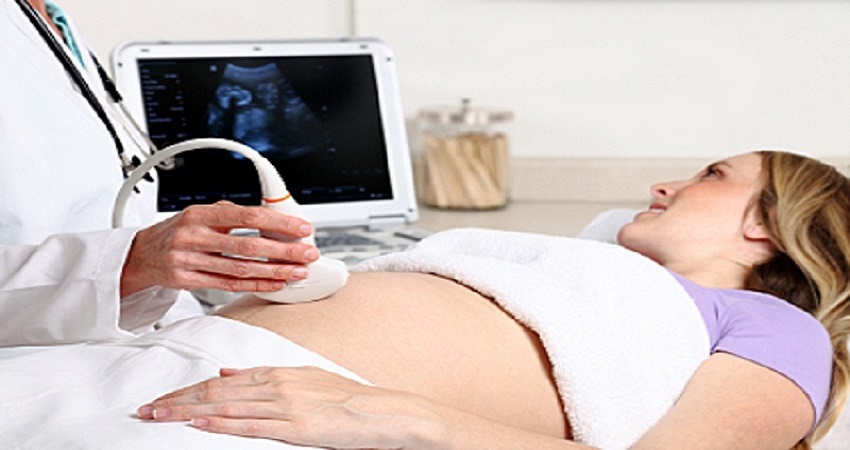Women
Welcome to Women

Welcome to the channel dedicated to women and pregnancy.
Whether you are about to become a mother or not, check out the nine months of pregnancy which is packed with relevant tips and information. The crisis pregnancy section aims to help those who are in a difficult situation, while medical matters will answer many of your questions.
- View the pregnancy pages
- Read some personal stories
- If you are experiencing a crisis pregnancy, get some help and advice
FAQ's on Women
Q1. How important is folic acid?

A folic acid supplement of 400 mcg. each day is strongly recommended for women trying to conceive and pregnant women, particularly those in the first trimester.
Folic acid is a water-soluble vitamin that is used to treat and prevent megoblastic anemia of pregnancy. This is a very important vitamin for women who are trying to conceive. It has recently been proven to significantly reduce the incidence of neural tube defects in babies whose mothers take this vitamin prior to, and during early pregnancy.
There is scattered research showing that folates may reduce the incidence of miscarriage, preterm delivery and low birth weight as well.
Folates are present in a variety of foods and occur in especially high levels in liver, fortified or whole-grain breads and cereals, dried peas and beans, leafy vegetables, fruit and yeast.
Q2. What is an ultrasound scan?

A scanner probe is placed on your skin and very high frequency sound waves that are inaudible to the human ear are passed into your body. As the sound waves pass over objects in fluid, they produce a pattern of echoes. These echoes are converted into electrical signals, which are processed and displayed on a screen as a two-dimensional image.
You may be worried that it will hurt. But, not at all. As the scanner probe is guided over your abdomen, you will feel only the cold plastic. If the pregnancy is at a very early stage, you may need to have a full bladder for the scan to be effective, this may cause slight discomfort.
There are several reasons why a scan is offered: to measure the baby and to give an accurate delivery date; to find out how many babies you are carrying; to check for any complications by looking at the baby's limbs, organs, brain and spine; to check that the placenta is not lying over your cervix; or to see the position of the baby. You don't have to have a scan and shouldn't feel forced into having it.
When to have a scan can depend on your hospital, but an early scan may be offered 8 to 12 weeks after your last period, so as to date the pregnancy. You will be given a routine scan at about 18 - 22 weeks to check the development of your baby's organs.
Q3. What is pre-eclampsia?
Pre-eclampsia is a disease which occurs in later pregnancy and which is marked by high blood pressure and protein in the urine. High blood pressure is one of the commonest reasons a mother has to be admitted to hospital during her pregnancy. This is because it can indicate pre-eclampsia. Around one in ten women get high blood pressure in pregnancy but only one in 50 women actually get pre-eclampsia. Other symptoms include headaches and swelling of the fingers, face and ankles but not all women with pre-eclampsia get these.
Doctors can give drugs to lower the blood pressure but the only cure for pre-eclampsia is to deliver the baby and it is the cause of around 15 per cent of premature births. Babies born to mothers with pre-eclampsia may sometimes be low birth weight in addition to their premature birth because their growth has been affected by the disease.
In the most serious cases of pre-eclampsia, a mother may suffer fits, liver and kidney failure, and difficulty in breathing. Seven women and around 1,000 babies in the UK die each year because of pre-eclampsia and it is a significant cause of maternal death in developing countries.
Q4. What causes miscarriage?
Miscarriage is the loss of a baby during pregnancy anytime from the date of a missed period to 24 weeks of pregnancy. After 24 weeks of pregnancy, delivery of a baby which dies in the womb is described as stillbirth.
Miscarriage is a common pregnancy complication - one in five pregnancies will end in miscarriage - but it is a very real and devastating loss for parents who have already started to bond with their baby.
The majority of miscarriage are 'early' occurring before 13 weeks of pregnancy. Around half of these, pregnancy fails because the baby is abnormal in someway. However, very little is known about the remaining half of early miscarriages, and about late or recurrent miscarriages.
Recurrent miscarriages are defined as more than three in a row and affect around one per cent of women.
We know that miscarriage can be related to an imbalance of pregnancy hormones or can be caused because a mother's placenta is weakened, damaged or fails to grow. Some late miscarriages may occur if a woman's cervix is weak and starts to dilate to soon or if a mother has a serious infection such as Listeria or Toxoplasmosis. Recurrent miscarriages may be caused if the mother has polycystic ovaries (characterized by irregular periods), or systemic lupus erythematosus or antiphospholipid syndrome, which are two rare disorders of the immune system.
Q5. Are there life-threatening illnesses arising in pregnancy where the life of the mother can only be saved by abortion?
No. Several conditions can arise in pregnancy which, if left untreated, would result in the death of the expectant mother and consequently of her child. HELLP Syndrome, pre-eclampsia, congestive heart failure and other conditions can arise in pregnant women.
The necessary treatment is the termination of the pregnancy, not the termination of the life of the unborn child; in other words, the intent is to bring the pregnancy to an end, not to deliberately kill the unborn baby. Usually the unborn baby is viable, i.e. can survive outside the mother's womb. In rare cases the condition threatens the life of the mother before the child is viable. In these cases current medical practice is to deliver the child and to do all that is possible to save his/her life.
A small minority of doctors argue that this treatment constitutes an abortion, since the practicing obstetrician knows that the ending of the pregnancy will in all probability, effectively end the baby's life. We argue that there is no intent to kill the baby, an essential requisite for what the vast majority of people consider to be "abortion."
Cancer of the womb occurs in a tiny number of expectant mothers. It is often necessary to remove the pregnant uterus to prevent the spread of the cancer and, thereby, save the mother's life.
This is standard practice and any doctor who did not provide the necessary treatment would be guilty of professional misconduct. Again, the intent is to treat the cancerous womb, not to deliberately kill the unborn baby, and such treatment is not and has never been considered an abortion.
An ectopic pregnancy is said to occur when implantation of the fertilized ovum occurs anywhere other than the womb, most commonly in the Fallopian tubes, but occasionally elsewhere such as in the abdominal cavity. Ectopic pregnancy is not compatible with survival of the unborn baby.
If the pregnancy is not ended the mother will die from hemorrhage as a result of rupture of the ectopic's implantation site. The more modern treatments aim to destroy the placenta of the ectopic pregnancy so that the pregnancy ends and the threat of rupture recedes. Left untreated, the mother and child will both die. Treatment will save the mother's life, and again, this is the sole intent of the practice.
The essential point here is the intent of the practitioner. The importance of intent is recognized in law. There is no reason why any of these cases should be used as excuses for refusing an absolute ban on the deliberate and intentional killing of the unborn, commonly known as abortion.
In 1951, Dr. R. J. Heffernan, of Tufts University, said:
"Anyone who performs a therapeutic abortion (for physical disease) is either ignorant of modern methods of treating the complications of pregnancy, or is unwilling to take time to use them." Congress of American College of Surgeons, 1951.
Q6. What about lethal deformities in pregnancy?
The most common of the lethal deformities occurring in pregnancy is anencephaly, the most severe manifestation of spina bifida. In this case the child's brain and skull-cap fail to develop. The child will have a brain-stem which will keep his/her heart beating during pregnancy and for a short time after delivery.
This condition is incompatible with continued life outside the womb. The child typically survives for minutes after birth. Some argue that since the child will die so soon after birth, it is better for the mother to abort the pregnancy rather than have to face waiting for the birth and subsequent death of her child.
We believe that the child should be allowed whatever life-span he/she has, and that it is wrong to take that little length of life from the child. From a practical point of view, there are several benefits in continuing the pregnancy to term, if possible.
The complex hormonal cascade that occurs in pregnancy is terminated in a natural manner, rather than stopped abruptly in an artificial manner. This may have implications for the risk of breast cancer, which is lower in women who complete their pregnancies in a natural manner rather than terminating the pregnancy prematurely.
The mother has the opportunity of holding her newborn child in her arms albeit for a short time. This is of considerable benefit from the point of view of the subsequent grieving process.
The mother avoids all the risks associated with abortion.
We should absolutely reject the disturbingly arrogant assertion that we should tolerate any form of discrimination against the handicapped. It is not for us or indeed for the All-Party Committee to decide if some subjective opinion of the "quality of life" of another human being should determine whether or not they have a right to life.
Q7. What about the risk of suicide?
Pregnancy is a protective factor as regards the risk of suicide. Suicide does occur in pregnancy, but far less commonly than in non-pregnant women. Threat of suicide is not an indication for abortion, since the woman is more likely to commit suicide if she has an abortion than if she continues her pregnancy to term. Only in a world gone mad would society allow psychosocial problems such as crisis pregnancy to be dealt with by recourse to surgery or abortifacient medication. A supportive environment is the most important thing to provide a woman in this unfortunate situation. In countries such as Ireland which has a strongly Pro-Life ethos, women who abort their pregnancies are far more likely to develop severe or prolonged psychological or psychiatric problems. This risk is increased if the woman is young or if she is pressured into aborting her pregnancy, which is usually the case.